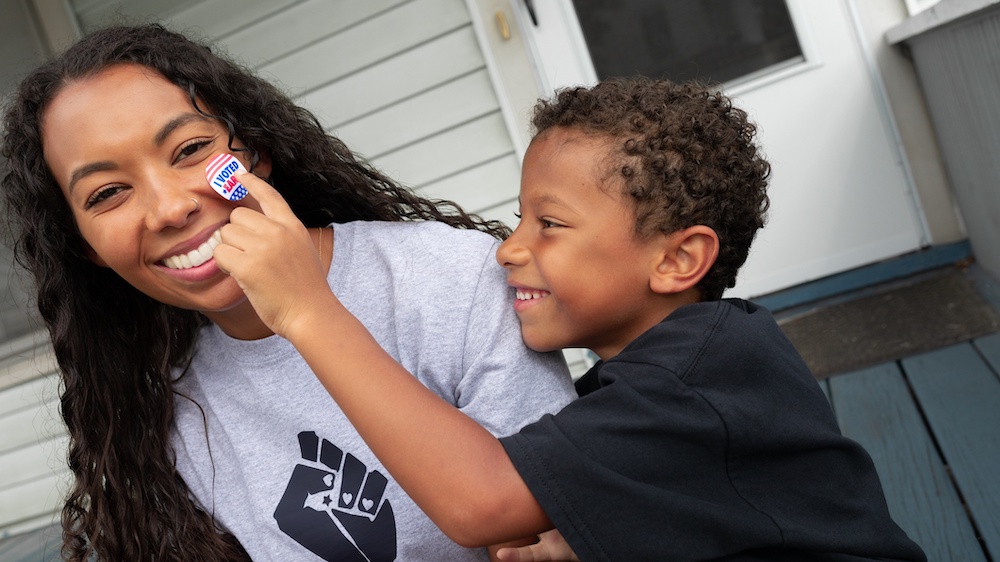If you’re interested in sharing your opinion on any cultural, political or personal topic, create an account here and check out our how-to post to learn more.
____
All of a sudden in America, Black votes really matter. As a Black man and native of Atlanta, Georgia, who’s lived through the 2020 election, I should know.
Over the years, I’ve lost count of the times I’ve heard Black friends tell me they feel their votes, their voice or their values didn’t matter. But in Georgia, people who look like me, my aunties and my parents have just remade presidential politics for generations to come.
We’ve countered decades of voter suppression — from poll taxes during the Jim Crow eras to purging voters from the rolls two years ago — which has long led lawmakers to presume the state will go red in the presidential race. And come January 5, 2021, when two U.S. Senate run-off races will decide which party controls the world’s “greatest deliberative body,” a wave of newly engaged voters in the Peach State will hold the balance of power in our hands.
Lawmakers on both sides of the aisle have made it clear that their plans for the next four years depend on the outcome of the run-off. It’s thanks to 800,000 new voters in the state since the 2018 election that we are where we are. And two thirds of those are people of color. Georgia also led the country with the highest jump in youth voter registration since 2016, and they accounted for a full 21% of Georgia’s votes, compared with 17% across the country.
Georgia shows what is possible when under-mobilized citizens are engaged and brought to the table. Especially Black citizens. One Black community organizer in Atlanta was going door-to-door before the election wearing a “Black Panther” t-shirt and saying “Wakanda Forever” to all the voters he signed up. His enthusiasm was infectious, and a fitting tribute to the late Chadwick Boseman, the Black Panther actor whose final tweet challenged everyone to head to the polls.
Georgia is also positioned to teach the country as a whole that there’s value in a civics education. It’s not solely about Black or youth votes. True civic learning and engagement begins far earlier than when we can cast our first votes. Yet, in America, we still do not provide high school students with universal access to a comprehensive, experiential civics education that prepares them for meaningful participation in our democracy.
In many instances, students who took to the streets this year as part of the racial justice protests across the country were not hearing about them in their classrooms. There was a disconnect. It was a missed opportunity. A 50-state study of civics education underscores this point, highlighting an under-emphasis on the participation element of civics, includings things like protest, in state social studies standards.
We might be teaching “civics” in our schools, but we have not been teaching students how to take action on issues they care about, or how to participate in the political process in an informed way.
Across the country, we should be teaching students how to take part in meaningful discourse and discuss controversial issues as part of experiential civics. And we should be teaching students the real history of democracy in this country, including police brutality, the lasting ramifications of slavery, events like the Tulsa Race Massacre and the citizenship education drives of Black Southern women like Septima Clark.
The whole idea of civic education and engagement, too frequently, has been normalized as white. But prioritizing experiential civics education means helping all people — especially those who have been historically excluded from the process — participate as reflective, engaged citizens. rather than viewing some folks as objects.
There are simple, clear things we can do to get civics education back on track in our schools. We need culturally responsive teaching. We need social studies education, a field which is predominantly white, to both become more diverse and more adept in openly discussing contentious public issues, especially structural racism. We need to teach our students how to recognize, understand and evaluate different belief systems. How to engage the public policy process to create systemic change.
We need to show students how digital engagement is now central to politics. And we need to build democratic school cultures of empathy, deep teacher-student collaboration in the learning process and consensus-building.
Without this kind of holistic, hands-on civics education, our democracy erodes. And you can see it in the state of our current discourse. But we have the opportunity to reimagine our education system to empower students to improve their communities.
By funding civics education across the country, and with equity at the heart of it, we can create generations of informed, active citizens who value and fight for our democracy.
When I took my advanced placement government course in high school, I had to process a few emblems of civic exclusion along the way. From the mural of Stone Mountain, which some describe as the Mount Rushmore of the confederacy, and the largest shrine to white supremacy in the history of the world, to seeing the occasional Confederate flag at my predominantly white, private high school in College Park? Our civics course was of no help.
I think it would have been different if I’d been given a more comprehensive democracy education. I may have learned that history is not always destiny. That in Georgia, we could get rid of the Confederacy. We could get rid of Jim Crow segregation. And now? Georgia’s young and Black voters can be the deciding vote on the leadership of our Senate and the future of American democracy. That’s a very different picture. And a much more hopeful one.
